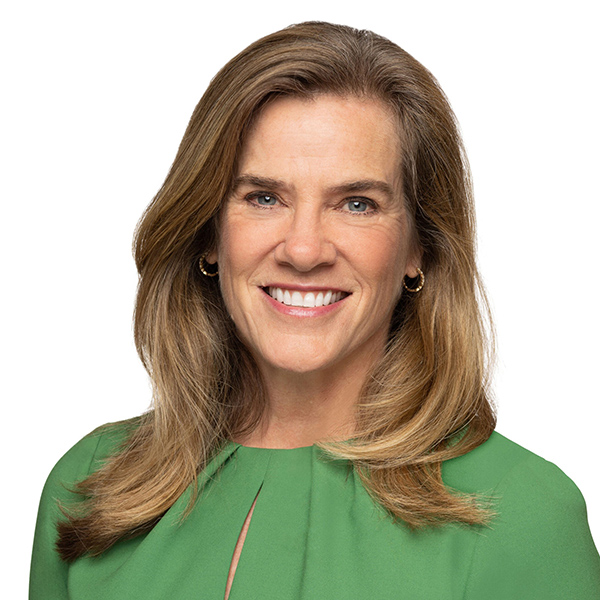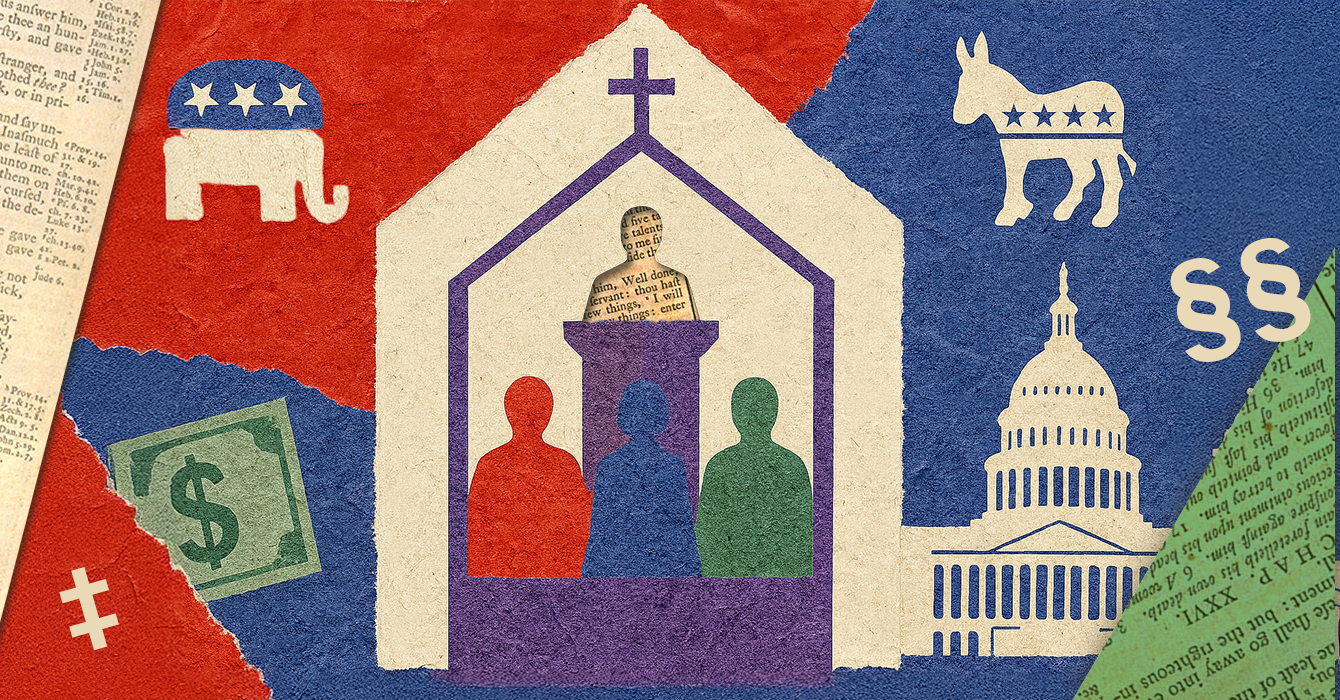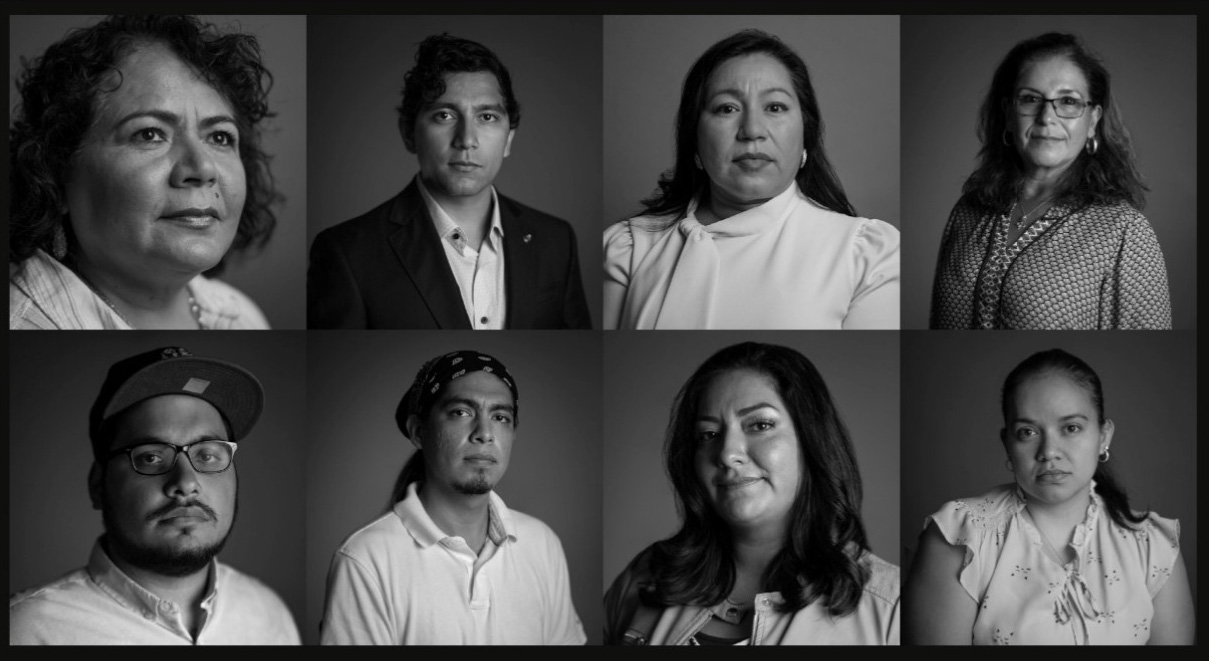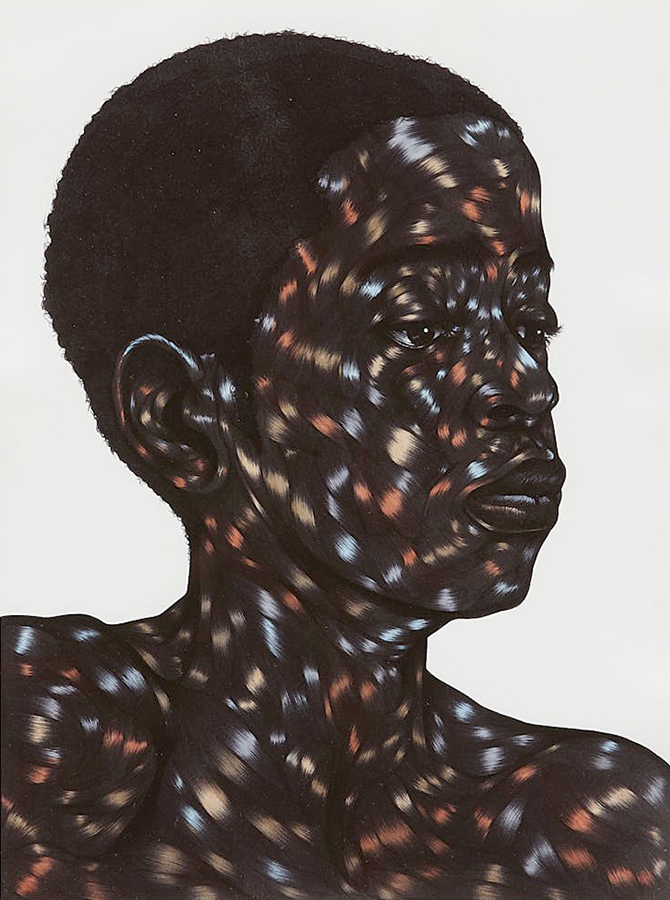Mainline churches should stop trying to imitate others and should ask themselves, “How can we be more fully ourselves?” said author Marilynne Robinson.
“What people need in this culture is truthfulness, dignity and aesthetic quality,” Robinson said. “Not everything in the world, but many things are depleting exactly those aspects of life now.
“The churches are in a position to give people what they urgently need and give them something that is only consistent with their dignity as human beings.”
Robinson is the author of the novels “Housekeeping,” “Gilead” (which won the Pulitzer Prize for fiction in 2005) and “Home,” and the nonfiction works “Mother Country: Britain, the Welfare State, and Nuclear Pollution,” “The Death of Adam: Essays on Modern Thought” and “Absence of Mind: The Dispelling of Inwardness from the Modern Myth of the Self.”
“Housekeeping” was included in The New York Times “Books of the Century” and listed as one of the 100 greatest novels of all time by the Guardian Observer (U.K.). In 1998, Robinson received a Strauss Living Award from the American Academy of Arts and Letters.
She currently teaches at the Iowa Writers’ Workshop and lives in Iowa City. She was born and raised a Presbyterian and is now a Congregationalist.
Robinson delivered the Hickman Lecture for “Drawn into Scripture: Arts and the Life of the Church,” Duke Divinity School’s 2011 Convocation & Pastors’ School.
She spoke to Jason Byassee about holding on to our histories, how the mainline Protestant tradition fell silent, and seeing the image of God in others. The video clip is an excerpt of the following edited transcript.
Q: Could you talk about what you admire about the Calvinists who moved to the edge of civilization in the 19th century and started colleges and hospitals?
I think they understood that what was at stake was a huge conflict of civilizations. The shorthand within our culture is pro-slavery [versus] anti-slavery. But slavery itself was sort of an extension of serfdom and class circumstance -- impoverishment of the working class and so on -- that had occurred everywhere in Europe for centuries and centuries of time.
The response to that, the antidote to it, was education. They were very serious about the fact that the more literate people were, the more they were able to secure their own liberty.
So they were abolitionists, but they understood as essential educating the populace that would arrive there. They were very early at educating women and Native Americans and black people on exactly the same basis.
Q: Is it conceivable that we could recover that kind of founding impulse?
One of the things that’s very impressive about these colleges that were founded by the abolitionists that moved west is that they are still very fine colleges. Oberlin, Grinnell -- the list is very long and very distinguished.
They’ve in many cases literally forgotten their origins, but they have not forgotten their ethos as far as humane and ambitious education is concerned.
There are origin narratives that are important for people to help them cohere as a civilization. I think we’ve forgotten many of our most important narratives.
People talk about being conservative now, but it seems to be without content, except maybe they took something from a Western movie. I don’t think there would be any problem at all reanimating that aspect of culture if people were simply more conscious of it.
Q: How do people reawaken to a lost version of their story?
The question has this sort of intrinsic interest for me. I did not know until I started doing certain kinds of research that that kind of forgetfulness was possible.
I came to Iowa from Massachusetts. You are very aware of at least major parts of Massachusetts history simply by living there. I came to Iowa and would say, “What is the history of this place?” and they would say, “It doesn’t have one.”
I knew that couldn’t be true, and so I started doing research into 19th-century sources of various kinds. I found out there was a glorious history, not just for Iowa, but for Illinois and Ohio and Kansas and Michigan and Minnesota. It was a huge phenomenon.
Q: What would you wish in terms of holding on to history for those who inhabit an office like that of a bishop, someone whose work is in Christian administration?
Something we tend to forget is that these institutions exist because they fill human needs.
Educational institutions and pastoral offices are ancient. And often the feeling, at least in institutions, is that they are supervisors in a negative sense of the word, that their function is more to control than to assist.
To the extent that thinking tends in that direction, it creates an adversarial environment that does not conduce to anyone’s happiness or good functioning.
Civilization and its offices are human creations that accommodate human needs, and everyone has to respond to them from that point of view.
Q: So it’s not that we can just do away with institutions and still be human beings that work.
I can’t imagine it, certainly not in our civilization. We tend very much towards institutionalization of things, and in many cases, fantastically positive things are the consequence of that.
This culture -- or any culture, perhaps -- is oddly at war with itself. The things that are most precious in it seem to come under particular pressure. And maybe it all balances in some way.
But I do think that it would be a good thing if we could step back and appreciate the human value of things we’re much too much in the habit of criticizing and taking negative attitudes toward.
Q: You’ve written in Harper’s Magazine about institutions whose deepest roots were radical. Can you talk about that notion of a “radical institution”?
Of course, I identify very strongly with the mainline Protestant tradition and its history, its music -- everything. And as far as I’m concerned, what happened to it was that it fell silent.
I don’t know quite -- I think that after the Civil War, there was an enormous shock when the realization of the cost of the war sank in. And I’m talking about blood and about the fact that even soldiers that survived the war would come home and their families would fall sick and die from diseases they brought home from the camps and so on.
Every war is horrible, but it was a horrible war, and it was a great trauma for the country to have hundreds of thousands of its own people dead on its own landscape.
What are called now the mainline churches were very much in the vanguard of the anti-slavery movement. They truly were radical in the terms of the time, and ahead of their time -- good women’s rights advocates and acting out their beliefs within their own communities and so on.
I think they were -- a lot of people turned against them because they tended to be blamed for the war, as if getting rid of slavery were only one option. And they lost their courage, I think.
And I think they are radical institutions in their deepest impulses, but that they have been stereotyped as the archetypal conservative institutions. Not simply in terms of what they believe, but what they personify -- the original sort of WASP aspect of the civilization.
They don’t like this characterization. They don’t think past it. And they’ve been very much intimidated by these kinds of things.
I think that they would be very well positioned to assume an important place in contemporary culture. For them, the issue seems to be, “Should we imitate others?” and it never seems to be, “How can we be more fully ourselves?”
Q: You mentioned courage. This phrase you use in “Gilead” of “prevenient courage” is close to the heart of Methodists, because we talk about prevenient grace that God gives us so that everybody can indeed respond to grace. Why do you describe courage this way?
For me, prevenient courage means, for a Christian person, that you understand that difficult demands might be made on you and that you are furthermore obliged to be attentive enough to know when a demand is being made.
So the courage is not triggered spontaneously by the moment. It is in fact something that, if you believe in God, will pre-exist the circumstance in which courage is required.
Q: So it’s something you could practice before that sort of moment?
Yes. When Calvin says, “The only true knowledge of God is born of obedience,” he’s saying you have to be very alert to the occasions in which God lets you understand what obedience might be. And in that context, obedience and courage are simultaneous.
Q: Say more about that alertness. How do you inculcate a habit of paying the right sort of attention?
I’m pure Calvin. He might stand and say, “No, you’re not, lady.” In any case, he also says at greater length that when you encounter anyone, the question you have to ask is, “What does God want from this encounter?”
And he writes very beautifully about the notion that any encounter with another human being is an encounter with an image of God.
If it’s someone offending against you, it is someone that God is waiting to forgive for his offense. And so it’s a sort of triangulation where you’re not in the trenches at war with some other person.
You are thinking, “This person is sacred to God. What is God asking of me in my encounter with him or her?”
Calvin does insist that when you see a human being, you are seeing an image of God. He says that the beauty of the image should override everything and leave you with only the will to embrace that person and help them to the fullest extent of one’s means.
The idea of a human adversary is something that he virtually eliminates as a concept that is possible to a Christian person.
And when you consider that he himself was under threat of death or his whole city was under the threat of death for decades and decades and decades, he was not speaking loosely. He was talking about a time when the Inquisition was very active all around them.
So for him to say you cannot legitimately call another human being your adversary is a very, very major statement.
Q: This sounds like an enormously fruitful posture for an institutional leader.
One of the things that bothers me very much about a lot of the public version of Christianity -- what you see in the press and everything now -- are people who actually define themselves against adversaries. They look for enemies. And they split hairs to find enemies. This is very anti-religious behavior.
Q: Your writing draws upon Calvinist theology. How do you situate your own enthusiasm about Calvin against those who champion him but may have other agendas at work than yours?
I would like to know if they’ve read him. I went through a very long period when I read things that other people talked about as if they had read. And you find out that Marxists had not read Marx. And many of these people that call themselves Calvinists have not read Calvin.
I think that the great modern Calvinist was Karl Barth. There are earlier people of interest, but for the most part I don’t accept the Calvinism of many of these people who claim him. For them, it just means some sort of bare-knuckle self-righteousness. You could refute it a thousand times just from his own language.
Q: People speak of your fiction using adjectives like “luminous” and “gentle” and “tender.” But your essays, such as “The Death of Adam” or “Absence of Mind,” have a different level of intensity. How do you think what tone to use in your writing?
Physiologically speaking, it does seem to come from different parts of my brain. I love gentleness. I feel that it’s very much under attack.
Things like humility and self-questioning, things that are really the refinements of high civilization, and really just civilization, are being dismissed, unlearned, scorned. So in a certain sense, I ponder them in my fiction and I try to defend them in my nonfiction.
One of the rules that I have for myself, which is just to make writing possible for me -- I only write about characters I love. A character is entirely vulnerable to his or her writer. And it seems cheap to me to demonize them or dismissively destroy them.
When I write polemically, as people say -- I don’t really think of myself as a polemicist -- but it’s ideas that I’m going after. It’s not human beings.
Q: In “Gilead,” you write, “I hope you will put yourself in the way of the gift.” Can you talk about “the way of the gift”?
The depth of religion is the product of study.
And whether that’s academic study or the study of human circumstance, it is not in my tradition and it’s not in my habit of thought that people go through sudden conversions and that everything is basically settled after they’ve crossed some threshold.
I think that we’re given many, many rich means to access greater and greater understanding. Things like music and arts and books and all kinds of things, and experience. And seeking them out is putting oneself in the way of the gift.
Q: You have rejected the notion that some people are religious and some are not, and that our culture has drawn a line between them. Talk about that.
I think that many, many people are religious whether or not they have some outward expression of religion that they can have access to or participate in.
It’s an insult to people to say that they are hostile to religion. This is an assumption about other people we have no right to make. And even if they are at some particular stage in their life indifferent or hostile, that doesn’t mean they always will be.
We have to consider people to be on their way somewhere, and we have to consider people to be precious to God whether they understand themselves as religious. I think that drawing of the line is an offensive act in the first place.
We know that 40 percent of the [U.S.] population is churchgoing on a weekly basis. There’s nothing else like this in the Western world. If 40 percent of the population bought a book that you wrote, you would be one of the best-selling authors of all time. People conjure this phantom other that they can scare themselves with.
If it happens that a social commentator makes a remark about the stupidity or the crudeness of something that is done in a religious setting, I think that commentator is giving that religion useful advice. And it should be accepted just as Ezekiel and Isaiah were accepted. They’re being told something that they need to know.
What people need in this culture is truthfulness, dignity and aesthetic quality. Not everything in the world, but many things are depleting exactly those aspects of life now.
The churches are in a position to give people what they urgently need and give them something that is only consistent with their dignity as human beings.
Instead of that, many of the churches are imitating the cheapest effects that come out of the mass culture -- which are all, by the way, commercial products of corporations and not by any means popular art.
So I count it among my blessings -- although this is something that people are sometimes surprised by -- that I have spent my life, most of it, in a great big secular university surrounded by people who are in themselves, in any number of ways, religious or nonreligious, whom I utterly respect and would never offend by saying they’re somehow in some outer, wailing darkness.
This is not a judgment for me to make.











